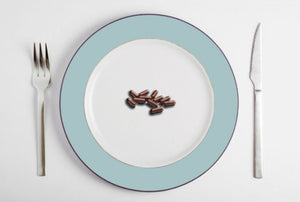Probiotics: The When And How
September 17, 2018

Getting healthy is a choice we make. While there are many things we do not have control over, we can consciously decide to make a difference in our own lives. This can involve a change in diet and eating habits, sleep or exercise. We might want to become more mindful and meditative, and reduce stress and anxiety. Perhaps we want a new hobby that involves sport or physical activity. Whatever it is, it is a personal choice.
Every single one of us is different, and understanding this is extremely important. What works for one, may not necessarily work for all. Our bodies fit into this as well, and we need to always be in tune with how we are physically feeling, and the things that benefit us, as well as the things that don’t. For any major life changes, you should consult your doctor or health professional. And it is always a good idea to keep tabs on yourself. A daily health and eating journal is a great way to track things.
Probiotics – The When
If you have done your research, you know how many benefits probiotics can offer you. They can aid in digestive health, reduce the symptoms of diarrhea, boost your immunity and help reduce stress. This is just a small part of the list.
Once you have made the decision to take a daily probiotic supplement, you probably have many questions. Which brand is the most effective? Which strain will help with my goals? What is the best time of day to take probiotics? You can visit Natren.com for answers to many of these questions and more, but let’s address the when and how.
As far as what time of day you take probiotics is largely up to you. The key is to develop a regular and consistent routine. If you take probiotics to address digestive issues, such as diarrhea or bloating, you will get the most benefit from beneficial bacteria by taking supplements before every meal, with non-chilled, filtered water.
For some people who have trouble sleeping, the best time to take probiotics is right before bed. A strong connection exists between the gut and the liver, and “quieting” the liver seems to help with sleep. A probiotic containing a significant amount of Bifidobacterium is recommended. Early risers may benefit more by taking probiotics in the morning. What is right for you and your specific situation will dictate the timing.
Probiotics – The How
Do you take probiotics with food or on an empty stomach?
Taking probiotics with a light meal may help reduce their exposure to harsh stomach acid and assist their passage into the small and large intestines. It is not suggested to take probiotics with heavy meals, as they take longer to digest and may delay the movement of the probiotic bacteria into the lower portion of your G.I. tract.
All users should avoid taking probiotics within two hours of consuming herbs, garlic, or prescription drugs, or any supplements known to have anti-bacterial properties, as certain foods and medications can destroy probiotics. If you’re taking any of these, wait at least two hours and then take your probiotics. The key is to find a regular and consistent time of day that works best for you, and keep track of your results. It may involve a little experimenting, but you will find what is ideal for your individual needs and goals.
What makes it so much easier on you is how unique Natren’s probiotics are. Their Oil Matrix Delivery System ensures that the beneficial bacterial survive the acid-bath in your stomach. Since they can survive stomach acid for over an hour, they are the only probiotic you can take in the morning, before meals, or in the evening without worrying. Natren also offers powdered probiotics, which allow you to choose the amount you desire, and are great for people who have trouble swallowing capsules.
Natren is always happy to answer your questions, so visit Natren.com for more information and to start to get healthy today.
The post Probiotics: The When And How appeared first on Natren Probiotics Blog.




Leave a comment